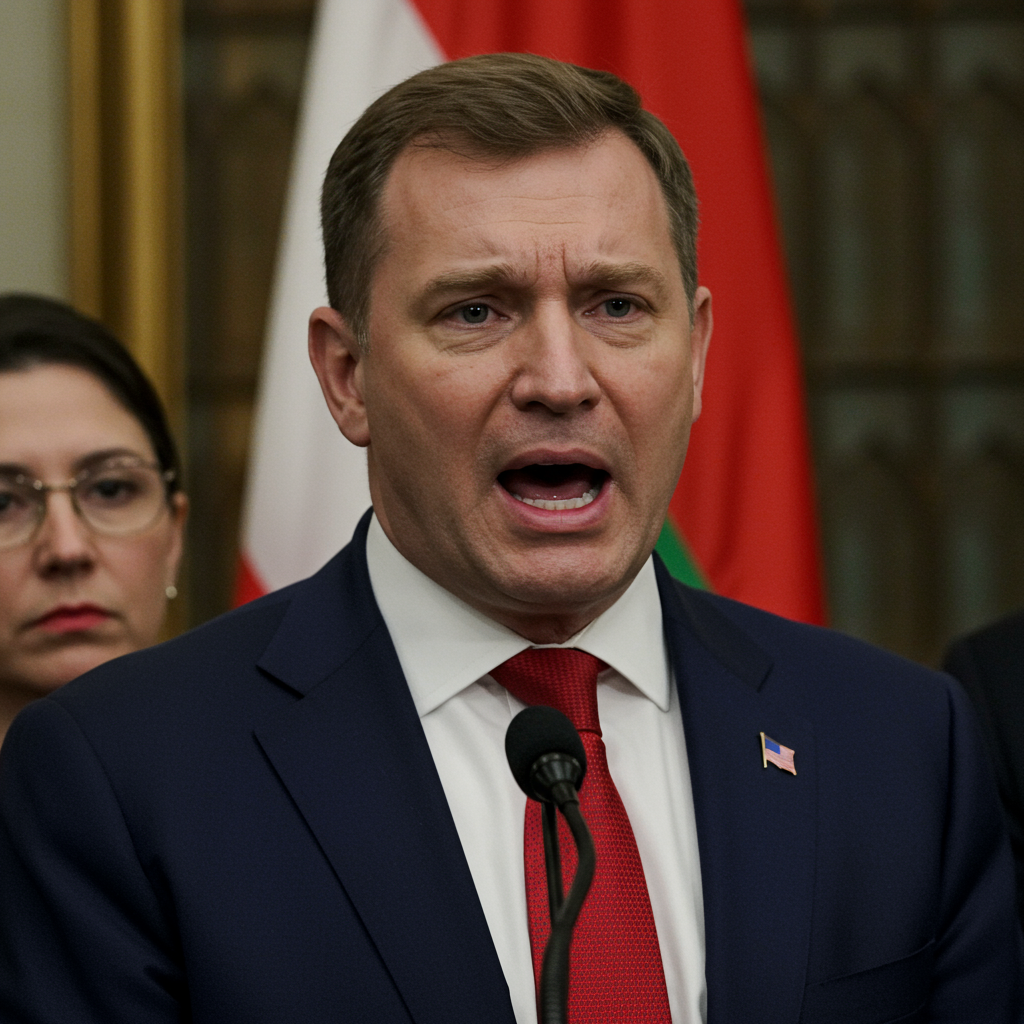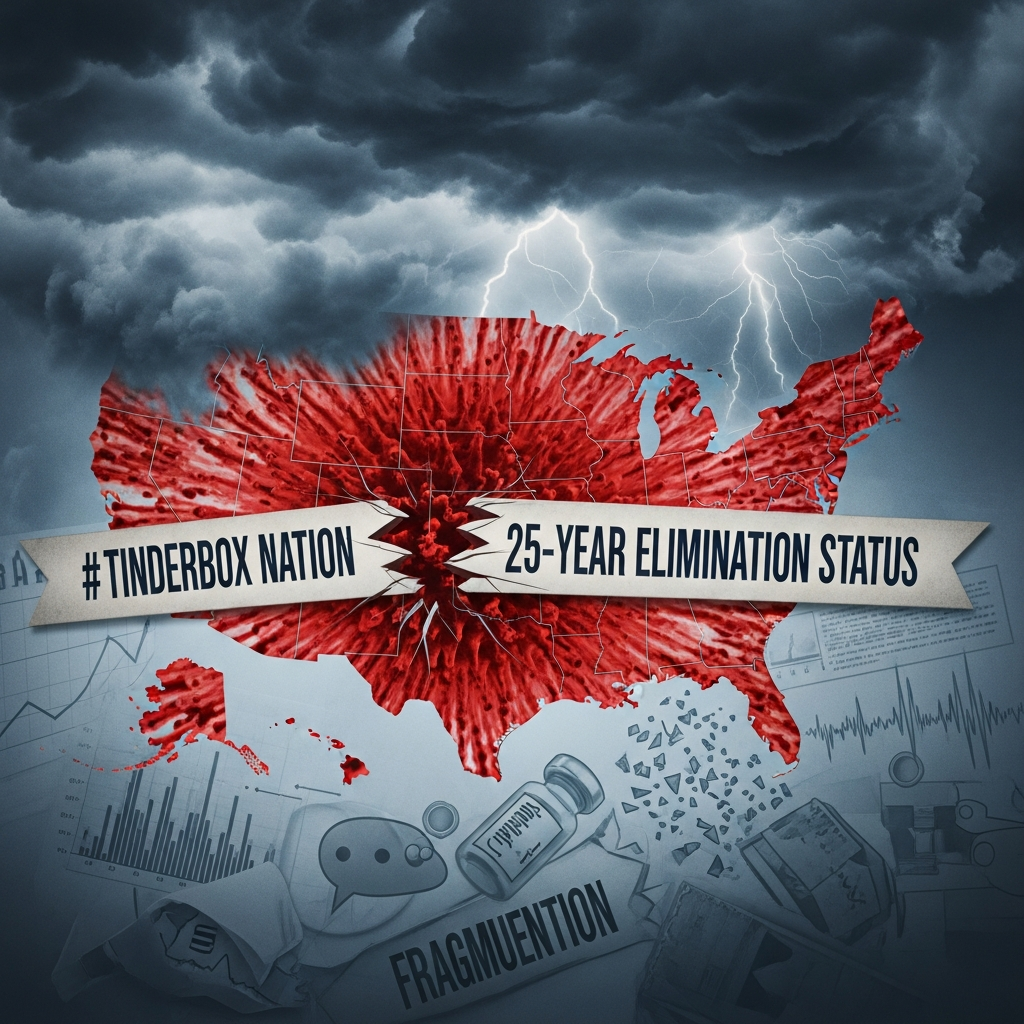Emotional Plea for Freedom: Freed Belarus Prisoner Urges Trump’s Influence
In a deeply emotional press conference following his unexpected release, Sergei Tikhanovsky, a prominent opposition figure and husband of Belarus’ opposition leader Svetlana Tikhanovskaya, issued a direct appeal to former US President Donald Trump. Having endured five harrowing years in solitary confinement, Tikhanovsky called on Trump to use his unique power to secure the freedom of the estimated more than 1,000 political prisoners still held in Belarus.
The release on Saturday saw Tikhanovsky and thirteen other political prisoners freed, subsequently forced into exile and reunited with family in Lithuania. This move coincided with the first high-profile US visit to Belarus in many years, as US special envoy Keith Kellogg met with authoritarian leader Alexander Lukashenko in Minsk. While a limited gesture, the release, which included Belarusian, Japanese, Polish, and Swedish nationals, offers a rare glimpse of movement in a system defined by relentless repression.
Five Years Cut Off From the World
Speaking in Vilnius, Lithuania, Tikhanovsky struggled for words at times, visibly affected by his ordeal. Breaking down in tears, he recounted the brutal conditions of his imprisonment, held under the “strictest possible regime.” He described being completely cut off from the outside world for half a decade.
“You don’t even get letters, not a single call. For five years, I couldn’t even go to confession with a priest. No letters, no calls, no priest, no lawyer,” he stated, detailing the lack of basic necessities like soap or a toothbrush. He starkly compared his situation to that of murderers, who he said had more privileges, calling the treatment “inhuman,” a “nightmare,” and “torture.” He emphasized the dehumanizing impact, asking, “How can they do that?… It’s inhuman… They have to stop this. We have to get people out.”
Svetlana Tikhanovskaya, present at the press conference, wiped away tears as her husband spoke. She noted how much he had changed physically in prison and how their daughter did not recognize him upon reunion, highlighting the profound personal toll of his incarceration.
Why the Appeal to Trump?
Tikhanovsky believes that Donald Trump holds a unique key to unlocking the prison doors for others. “Trump has such power and such possibilities, that with one word he could free all political prisoners. I ask him to say that word now,” he implored. The timing of the release, just hours after the US envoy meeting, has led to speculation about a connection, with Svetlana Tikhanovskaya publicly thanking Trump and his administration for their efforts in securing her husband’s freedom, alongside European allies. Russian state media even cited Lukashenko’s spokeswoman claiming the release was ordered at Trump’s “request,” a notion Trump himself appeared to endorse on social media.
The Political Calculus Behind the Release
The release raises questions about Lukashenko’s motivations. Svetlana Tikhanovskaya suggested the only thing the Belarusian leader received in return was the visit from US envoy Kellogg, allowing Lukashenko to potentially present this as a rare diplomatic success after years of isolation. Analysts suggest the visit itself could be seen as sufficient reward by Lukashenko, offering a potential path to improve relations with the US and possibly angle for sanctions relief, which Sergei Tikhanovsky believes Belarus desires most.
Lukashenko’s international isolation deepened significantly following the brutal crackdown on dissent after the disputed 2020 election and his support for Russia’s full-scale invasion of Ukraine. While this limited release might signal a calculated move for geopolitical gain, it starkly contrasts with the scale of ongoing repression.
Activist Roots and Ongoing Repression
Before his 2020 arrest, Sergei Tikhanovsky was a popular and outspoken video blogger and activist. He gained a large following by touring Belarus, meeting people and exposing their concerns, often using the defiant slogan “stop the cockroach” in reference to Lukashenko. He was arrested while planning to challenge Lukashenko in the presidential election and was later sentenced to 18 years on politically motivated charges, including “organizing riots” and “inciting hatred.”
Following his arrest, his wife Svetlana, initially a political newcomer, stepped in to run in his place. The election, widely dismissed as falsified by observers, led to the largest protests in Belarusian history, which were violently suppressed, forcing Svetlana into exile, where she became the internationally recognized leader of the opposition. Sergei Tikhanovsky clarified upon his release that he does not intend to challenge his wife’s leadership from exile. Raising a fist in defiance, he sent a message to Belarusians: “If you were waiting for a symbol, this is it,” urging them to stand up to the regime. Despite his suffering, he stated he regretted nothing, though acknowledging his release likely saved his life, as he wouldn’t have survived the full sentence under those conditions.
Exile is Not Freedom: Persecution Abroad
Even for those released and in exile, freedom from the Lukashenko regime is precarious. Since the brutal crackdown in 2020, hundreds of thousands of Belarusians are estimated to have fled the country. Yet, the government actively pursues and threatens dissidents abroad, portraying them as “traitors” plotting coups.
Methods of harassment include online pressure, veiled threats, attempts to extract information, and, significantly, legal persecution through trials in absentia enabled by a 2022 decree. Human rights groups report over 200 such cases, leading to the seizure of property and intense harassment of relatives who remain in Belarus. Authorities actively identify critics from photos of gatherings held outside Belarus, leveraging family ties as pressure points – some individuals have been jailed in Belarus simply because their relatives were opposition figures in exile. This strategy aims to break connections between exiles and those at home, exhaust the opposition, and make dissidents feel unsafe anywhere.
Human rights groups like Viasna estimate that tens of thousands of people have been arrested for political reasons in Belarus over the past five years. While 14 notable prisoners, including Sergei Tikhanovsky, have gained their freedom, the vast majority of the over 1,000 political prisoners remain behind bars, facing conditions Tikhanovsky described as torture, underscoring the scale of the ongoing struggle for human rights in Belarus.



